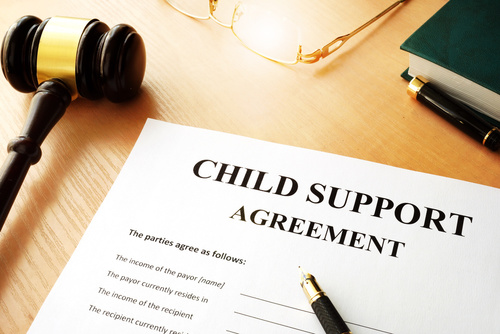
Experts estimate that today’s divorce rate stands between 42 percent and 45 percent, slightly lower than the peak years of the 1990s and 2000s, when one in two marriages typically ended in divorce. Children being raised in a home where the parents are not married, but are transitioning into different homes experience similar separation rates.
But the numbers don’t make it any easier on anyone, particularly the minor children who may suffer negative psychological effects from arguments or clashes arising during their parents’ divorce or residential transition.
“It used to be that we thought ‘divorce’ itself was responsible for the negative psychological effects on children. Spouses and parents stayed together ‘for the sake of the children,’” said divorce mediator Marta J. Papa, in divorcemag.com. “Now we know differently. After years of studying the impact of divorce on children, we have discovered that it is the conflict between the parents, not the divorce or separation per se, that is so emotionally traumatic for children.”
That is why avoiding or minimizing conflict before, during and after a divorce is key to a smooth transition for children. And it is no different for unmarried parents who are in custodial conflict.
“Divorced parents still must fulfill their responsibilities to their kids, and in my view, children should have rights in divorced families,” says Robert Emery, Ph.D. and a professor of Psychology and director of the Center for Children, Families, and the Law at the University of Virginia, on his website. Many courts across New York State, and even in other states, adopt the ‘Children’s Bill of Rights,’ taking them so seriously that they incorporate them as a ‘Bill of Rights’ directly into divorce decrees and Family Court custodial orders.
Emery created the following “Children’s Bill of Rights in Divorce.” It recommends that every child whose parents are divorcing or separating has:
- The right to love and be loved by both of your parents without feeling guilt or disapproval.
- The right to be protected from your parents’ anger with each other.
- The right to be kept out of the middle of your parents’ conflict, including the right not to pick sides, carry messages, or hear complaints about the other parent.
- The right not to have to choose one of your parents over the other.
- The right not to have to be responsible for the burden of either of your parents’ emotional problems.
- The right to know well in advance about important changes that will affect your life; for example, when one of your parents is going to move or get remarried.
- The right to reasonable financial support during your childhood and through your college years.
- The right to have feelings, to express your feelings, and to have both parents listen to how you feel.
- The right to have a life that is a close as possible to what it would have been if your parents stayed together.
- The right to be a kid.
“If you can give your children these freedoms, you will have gone a long way toward filling your responsibilities as a parent,” Emery says.
If you are considering divorce or a separation of households, but are concerned about the potential effects it could have on your children, contact a family and matrimonial attorney to learn more about ways to maintain a conflict-free divorce. The lawyers at Tully Rinckey PLLC are experienced in representing parents and spouses in legal separations, contested and uncontested divorces, and annulments. Contact us to schedule an initial consultation.
Christine F. Redfield, Esq. is a family and matrimonial attorney at Tully Rinckey PLLC’s Rochester office who focuses her practice on divorce and child custody cases.






